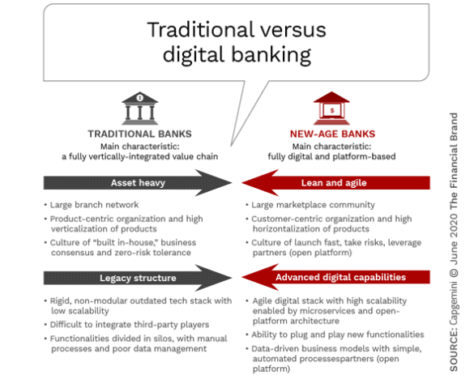WHILE Malaysia’s five pioneering digital banks will broaden the breadth of banking options to both consumers and small businesses, they would eventually complement rather than compete with incumbent conventional banks.
If anything, there could be heightened deposit competition in the short term with little disruption to the operations of conventional banks, according to Maybank IB Research.
“In the consumer space, we think that the digital banks should focus on wealth management products such as insurance/unit trusts and on creating a virtual financial ecosystem from which they can tap more lucrative fee income,” opined analyst Desmond Ch’ng in a banking sector update.
“They should also tap into the small- to mid-sized SMEs in the country which would be a higher-yielding segment.”
Recall that last Friday (April 29), Bank Negara Malaysia (BNM) awarded three conventional digital banking licenses to a consortium of Boost Holdings Sdn Bhd and RHB Bank Bhd; a consortium led by GXS Bank Pte Ltd and Kuok Brothers Sdn Bhd; and a consortium led by SEA Ltd (parent company of Shopee and YTL Digital Capital Sdn Bhd).
At the same time, two Islamic digital banking licenses were awarded to AEON Financial Service/AEON Credit Service/Money Lion and the KAF Investment Bank consortium.
“According to BNM, the unbanked population in Malaysia stands at just about 8% which does not seem large in our view,” observed Maybank IB Research.
“(However, digital banks) could pose some competition to ABMB (Holdings Bhd) which focuses primarily on smaller SMEs but what ABMB has to offer to SMEs that will take time to replicate would be a team of dedicated relationship managers and much experience in this space.”
Moving forward, Maybank IB Research expects a digital bank to undergo a period of operational readiness that will be validated by BNM, a process that is expected to take between 12 and 24 months.
It has to maintain an initial minimum capital of RM100 mil which rises to RM300 mil after three years and a total capital ratio of 8%.
During the foundational phase (minimum of three years and maximum of five years), its total asset size cannot exceed RM3 bil. Moreover, the bank is expected to hold Level 1 and Level 2A high-quality liquid assets or an equivalent to at least 25% of its total on-balance sheet liabilities.
“These financial criteria serve to ensure that some level of financial discipline is maintained while ensuring that the digital banks expand at a controlled space,” reckoned Maybank IB Research.
“What it does mean as well, however, is that the conventional banks are unlikely to face any significant competition in the medium term while affording them time to ramp.”

Outside Malaysia, Hong Kong first awarded its first digital banking license in 2019. Today, there are eight virtual bank in the country, namely ZA Bank, Airstar Bank, Fusion Bank, WeLab Bank. Ant Bank, PingAn OneConnect Bank, Livi Bank and Mox Bank.
Meanwhile, Singapore awarded four digital banking licenses in December 2020:
- Full digital bank licenses to (i) the Grab-Singtel consortium and (ii) SEA Group; and
- Digital wholesale bank licenses to (i) a wholly-owned entity of Ant Group and (ii) a consortium comprising Greenland Financial Holdings, Linklogis Hong Kong and Beijing Co-operative Equity Investment Fund Management.
In the Philippines, the six digital bank licensees are Overseas Filipino Bank, UNOBank, Maya Bank, UnionDigital, Gotyme and Tonik Digital Bank.
In Vietnam, there is one digital bank candidate in Ubank by VPBank while in terms of digital banking platforms (ie platforms co-developed between a bank and third parties), there are Timo and Cake.
Finally, Thailand plans to issue guidelines for digital banks by June this year. – May 4, 2022









